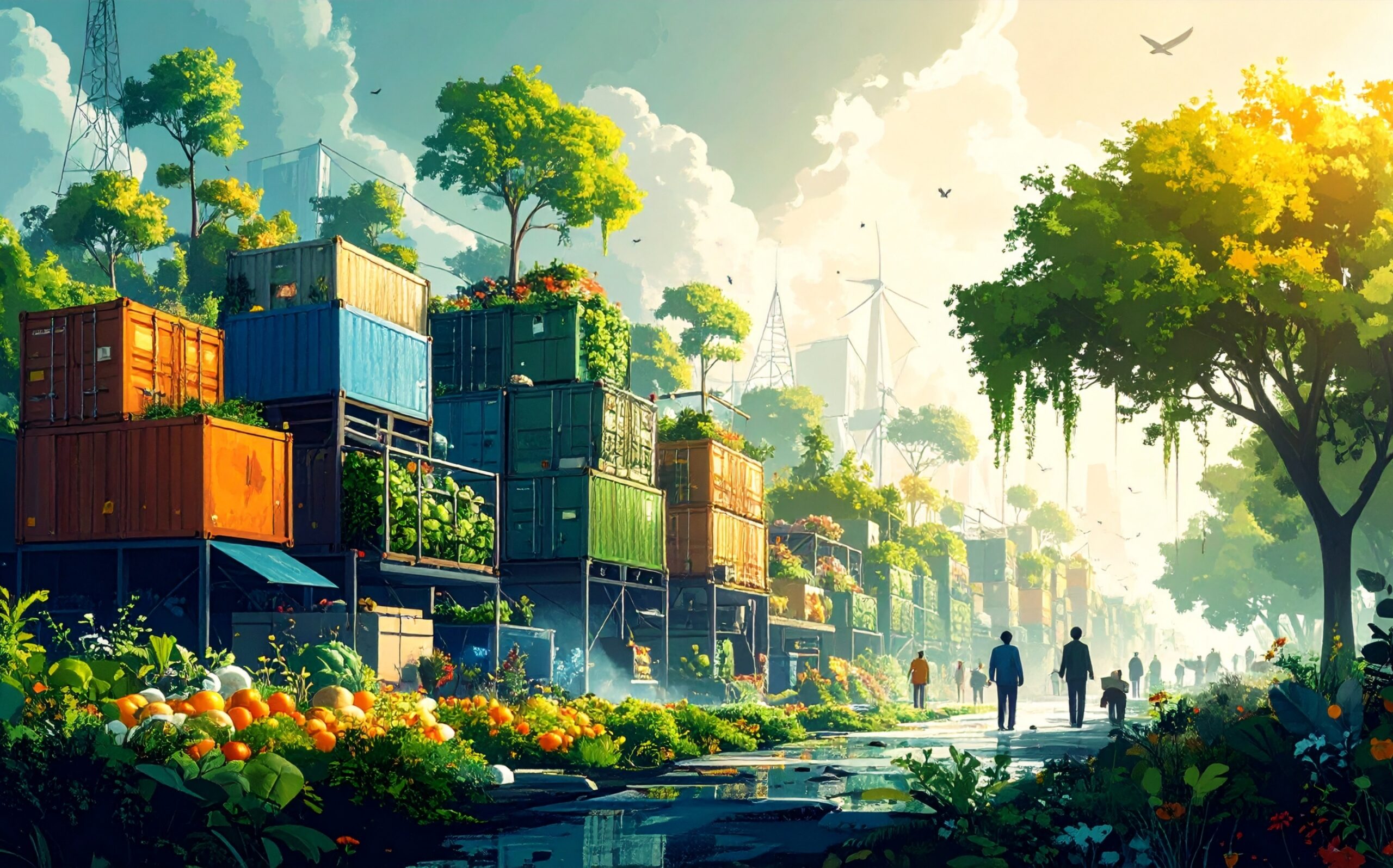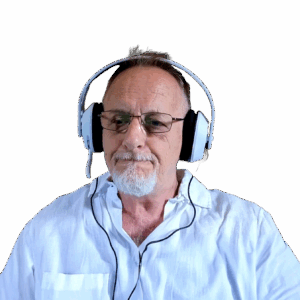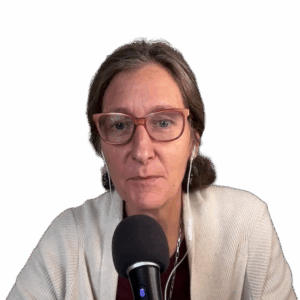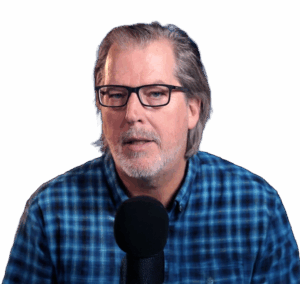
Ep 175 | Jean-Marc Jancovici
Jean-Marc Jancovici – Sobriete vs Poverty: Preparing for a New Cultural Paradigm
Description
As economic, political, and environmental pressures continue to reshape our daily choices, it’s becoming increasingly clear that the era of hyper-consumption that defined the past century is no longer sustainable. Recognizing and adapting to this reality represents one of the most profound cultural shifts of our time – requiring collective reflection and cooperation. But just as importantly, how can we recalibrate our personal expectations today in ways that preserve our sense of agency and sufficiency?
In this episode, Nate is joined by energy expert and educator Jean-Marc Jancovici, who shares insights from his ongoing work advising governments and the public on the limits of our economic systems amid growing energy and ecological constraints. Together, they discuss the evolving geopolitical landscape between the U.S. and Europe, the distinction between energy sobriéte and poverty, and the role of the elite in leading societal change towards more practical consumption levels.
How can we change the way we’re communicating the science behind our predicament, especially as political and economic tensions continue to accelerate? Why is our collective vision of the future so important for preventing political turmoil? Finally, how can we combine technological efficiency with a change in cultural values to create a future that’s not just survivable, but meaningfully better than the default?
About Jean-Marc Jancovici
Jean-Marc Jancovici is a founding partner of Carbone 4, a Paris based consultancy and data provider specializing in low carbon transition, biodiversity impacts, and physical risks of climate change. He is the founder and president of The Shift Project, a Paris based think tank advocating for a low carbon economy. Jean-Marc Jancovici is also an associate professor at Mines ParisTech, member of the French High Council for the Climate, and (co-)author of 8 books. Most recently, he and Christophe Blain released an American adaptation of their graphic novel, World Without End, which describes why our energy and environmental constraints require us to rethink everything: our energy supply, our economies, and our whole world.
In French, we have a motto that says that a simple drawing is often better than a long explanation. Jean-Marc Jancovici Carbone 4 President
That’s very understandable because with left atmosphere thinking, one of the problems is that you see everything as a series of problems that must have solutions. Iain McGilchrist Neuroscientist and Philosopher
We can’t have hundreds and hundreds of real relationships that are healthy because that requires time and effort and full attention and awareness of being in real relationship and conversation with the other human. Nate Hagens Director of ISEOF
This is the crux of the whole problem. Individual parts of nature are more valuable than the biocomplexity of nature. Thomas Crowther Founder Restor
Show Notes & Links to Learn More
Download transcript00:00 – Jean-Marc Jancovici, Previous TGS Episode
02:49 – “World Without End” US Version, Original Version
03:09 – The relationship between energy and technology
03:14 – Rise of Globalization and Loss of Biodiversity
03:29 – Fossil Fuels are hard to quit
03:40 – Climate Change
03:55 – Logical Reasoning
04:01 – The issue with Greenhouse Gases
04:19 – Fossil Fuels have given us the wealth we have today
05:01 – Carbon Pulse
05:22 – Un bon croquis vaut mieux qu’un long discours
05:29 – Christophe Blain
09:46 – Metric vs. Imperial unit system
11:09 – Iron Man armor
12:34 – The relationship between War, Geopolitics, Polarization, etc.
13:36 – The importance of Education for democracy
13:47 – 32% of United States citizens support Authoritarian government
14:06 – Crises can bring about change under certain conditions
15:07 – How U.S. Congress is using science for policy-making
15:18 – Public Trust in Scientists and Views on Their Role in Policymaking
18:14 – Confidence in scientists is up slightly but remains lower since before the pandemic
19:09 – How EU/France might respond to the Trump Administration
19:29 – Risk of Recession amongst U.S. tariffs
20:28 – Financial Crisis correlated with Peak Oil, maximum energy consumption in the U.S. in 2007 and Europe in 2006
21:07 – Greenhouse gas emissions have decreased in US since 2007 and Europe since 1990
21:15 – During first Trump’s first term carbon emissions declined the fastest
22:36 – Oil fields in the US, all but one have declining output, Permian Basin
23:29 – Trump is “flooding the zone”
23:55 – Europe should design their own/old plan separate from the U.S.
24:14 – Europe is a resource and energy poor continent
24:23 – Plans to withdraw U.S. security from Europe
26:44 – Populist parties on the rise in Europe
29:17 – The concept of “Sobriete”
30:11 – The problem with Energy Efficiency, Voluntary Simplicity vs. Poverty
32:00 – Poverty triggers political turmoil
34:49 – The rich are the least afraid of an unstable world
36:18 – Acceleration in global heating since 2023
36:37 – Record year for emissions in 2024
37:41 – Decline of Fossil Fuel access will not evenly distributed throughout of the world
37:48 – EU dependency on imports for fossil fuels
38:09 – Japan has been on the decline for 30 years, Stagflation
38:33 – Huge amounts of coal left, Switch from coal to gas
40:13 – India is increasing coal for AC because of warming
40:44 – Failure of COP, removal of science institutions in US, increasing focus on energy security
41:01 – Aggregate Behavior, Game Theory
41:07 – Superorganism
41:34 – First Christians resist crucifixion
41:49 – Humans need meaning
43:22 – The Shift Project’s Report: decarbonize the transition – monetary to physical
45:19 – Electric trains and energy efficiency
47:08 – Populism on the rise by taking advantage of fearful citizens (see pg. 29 by Philippe Legrain)
48:13 – The Shift Project’s guidance to the French government for decarbonizing
48:55 – European energy sovereignty, Europe imports all Fossil Fuels
49:16 – The U.S. is self-sufficient regarding oil and gas
50:33 – Delusion of Infinite Growth, Humans and Social Status
50:12 – Pierre Strack on 2000W Society + TGS Episode, Alexis Zeigler on Living Energy Farm + TGS Episode
51:01 – Social Status Drives Consumption and Conspicuous Consumption
51:50 – Optimal Foraging Theory
52:05 – Why Humans like to accumulate and save resources
52:46 – Humans are highly social animals
54:34 – Artificial Intelligence is not intelligence
55:03 – Europe and Artificial Intelligence, Why the US is the center of AI, Public Opinion
59:40 – Sales of Tesla are declining in Europe
59:57 – French tourism to the US is declining
1:00:48 – US support to Israel
1:00:50 – US role in negotiating peace in Russia and Ukraine
1:01:54 – The Carbon Pulse
1:02:15 – BREXIT, Italian PM Meloni
1:04:27 – Frankly on The Central Questions of Our Time
1:06:05 – French export of electricity and The Shift Project on Artificial Intelligence







